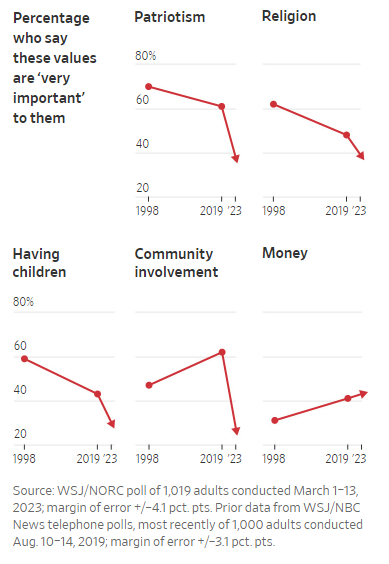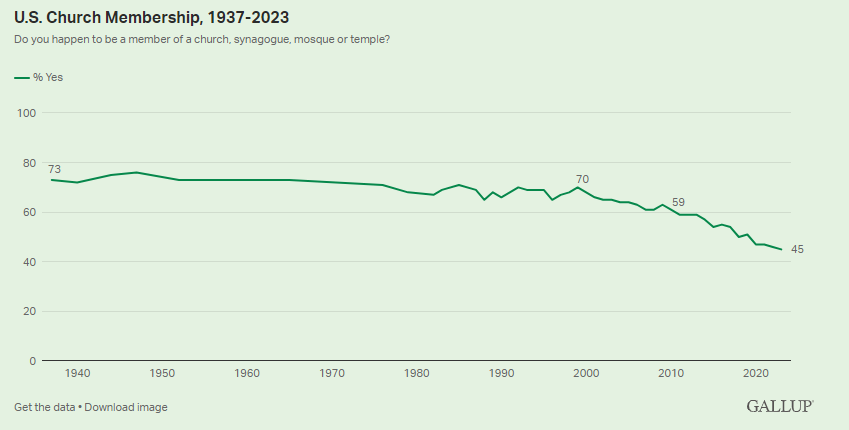One in every of my favourite popular culture developments lately is the well-known individual press tour.
If you happen to write a brand new e-book or have a brand new film or TV present popping out, it’s important to speak to each outlet conceivable to promote your undertaking. There’s a lot content material and a lot competitors for our consideration as of late that even uber-successful persons are pressured to make the laborious promote.
Meaning occurring each huge podcast. Then there are the morning reveals, in all probability some sports-pop tradition shops and even a GQ or Rolling Stone profile.
There isn’t any mono-culture anymore, so it’s important to flood all accessible channels as a way to get the phrase out.
Jerry Seinfeld has been on an all-out media blitz these previous few weeks to advertise his new film on Netflix.1
My favourite interview was his look on the Blocks Podcast with fellow comic Neal Brennan. The 2 comics are buddies, so Seinfeld appeared comfy sufficient to wax poetic on quite a lot of totally different subjects.
My finance mind was instantly drawn to their dialogue about cash. Jerry talked about how cash tradition modified without end within the Eighties:
SEINFELD: Within the seventies, that is the tragic flip of American tradition. And this was defined to me by Mario Joiner who cracked this puzzle that I couldn’t work out what the hell occurred. That cash turned every little thing. What occurred as a result of it was not like that within the seventies. Within the seventies, it’s how cool is your job? How cool is what you’re doing? In case your job’s cooler than my job, you beat me.
BRENNAN: And nobody mentioned, how a lot are you making?
SEINFELD: Oh, you’re doing okay. You’re making this? Yeah. Who cares? And Mario Joiner defined this to me. He mentioned the eighties was the primary time that younger guys may make some huge cash quick.
By no means existed earlier than. Wealthy guys have been Aristotle Onassis, Andrew Carnegie, transport, iron. You couldn’t make some huge cash quick in these days.
And it has poisoned our tradition to at the present time. It’s poison.
The Wall Avenue Journal had a ballot final 12 months that reveals the share of Individuals who say patriotism, faith, having youngsters and neighborhood involvement are essential to them have taken a nosedive in current many years. However take a look at the significance of cash:

It simply continues to rise.
It’s important to take most surveys with a grain of salt however it’s true in lots of ways in which cash has changed the establishments earlier generations valued. Simply take a look at the development in church membership in the US:

So what occurred? When did cash grow to be a deity in our society?
The expansion of the finance business within the Eighties actually performed a job in what Seinfeld is speaking about. Charley Ellis as soon as described what it was like working Wall Avenue again within the Sixties when he went into finance:
The work was attention-grabbing, however no person anticipated to make a lot cash–except you uncovered an excellent progress inventory, which was what all of us secretly hoped to do. MBAs have been unusual. PhDs have been by no means seen. Commissions nonetheless averaged 40 cents a share. All buying and selling was paper based mostly. Messengers with enormous black bins on wheels, full of inventory and bond certificates, scurried from dealer to dealer making an attempt to finish “good deliveries” of inventory and bond certificates.
The Eighties gave us Gordon Gekko, junk bonds, extra securitized merchandise, derivatives and Wall Avenue as a vacation spot for shiny younger folks. The dualing bull markets in shares and bonds additionally helped make folks wealthy. The financialization of every little thing is a development that has continued to at the present time.
The monetary and insurance coverage industries comprised round 1.5% of GDP by the mid-Nineteenth century. By the tip of World Battle II, it was solely as much as 2.5% of the pie. Finance was a reasonably secure 4% of the financial system by way of the Sixties and Nineteen Seventies.
The largest leap on report began within the Eighties. By the onset of the Nice Monetary Disaster, the finance business accounted for greater than 8% of GDP, which is roughly the place it stands at present.
An honest chunk of that progress began within the Nineties as Wall Avenue financed the IT revolution. Tech is one other business that has minted an astonishing variety of wealthy younger folks up to now few many years.1
Most individuals didn’t want these numbers to know Seinfeld’s principle checks out. Individuals are obsessive about cash. It’s one of many issues that makes us nice and depressing on the similar time.
I’m not suggesting cash isn’t essential. It’s. Cash can purchase safety, consolation, well being and a greater lifestyle. Possibly cash can’t purchase happiness but it surely’s a lot simpler to keep away from distress in case you have sufficient.
The issue is cash can’t fill the void in your life.
Seinfeld says fulfilling work is the answer to the poisons of cash:
Okay. I had a bunch of children across the desk final night time. And I mentioned to them, a few of them are beginning to work. I mentioned, in case your work is unfulfilling, the cash shall be too.
Comedians are the modern-day philosophers.
The entire interview is price a pay attention:
Additional Studying:
Timeless Themes From the Film Wall Avenue
1I didn’t watch it but however I’ll give it a attempt ultimately.
2Finance and tech additionally make up almost 45% of U.S. inventory market capitalization.



